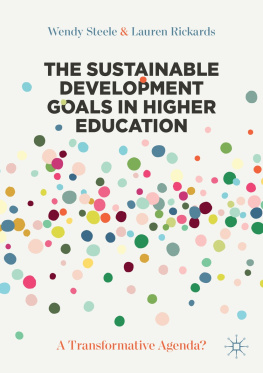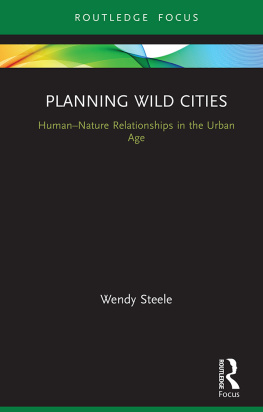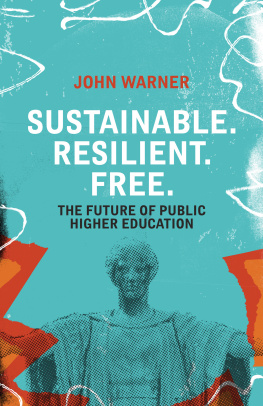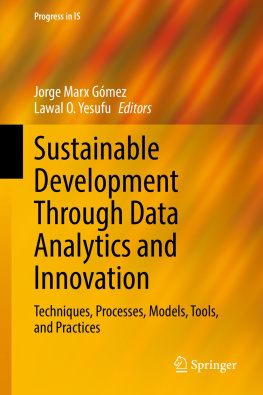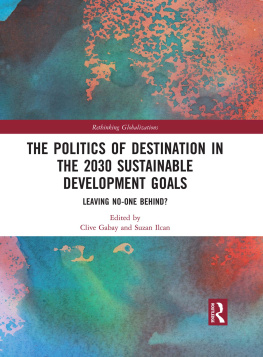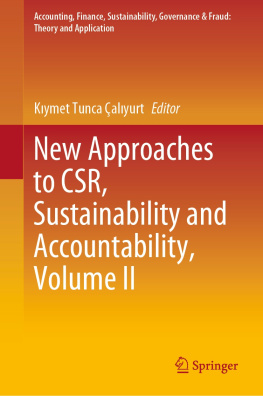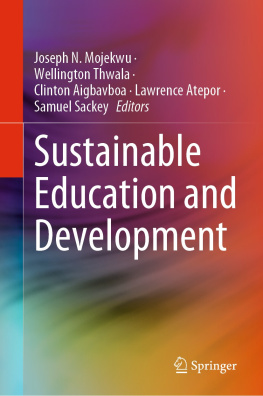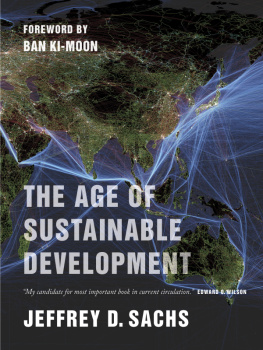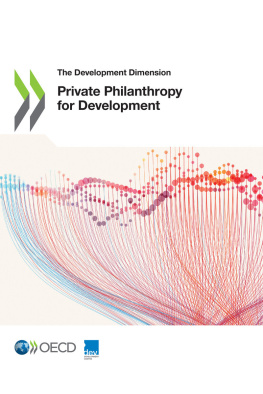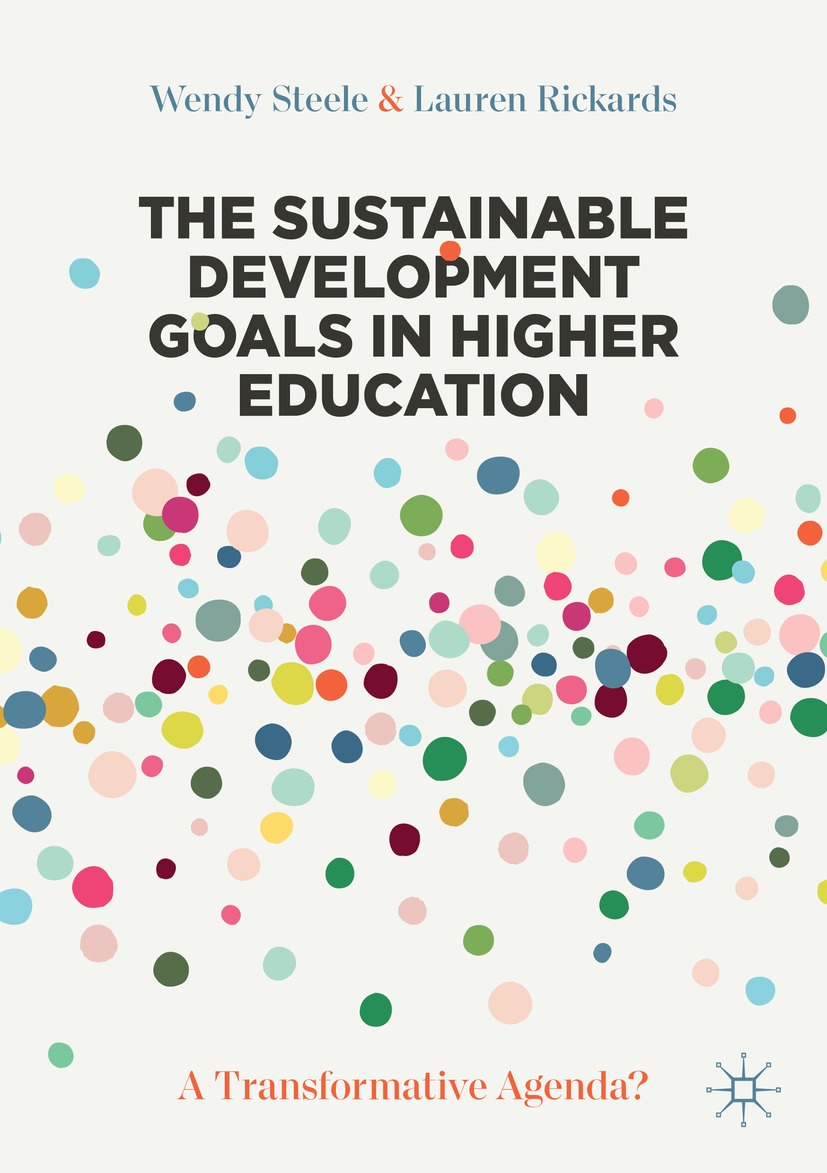Wendy Steele and Lauren Rickards
The Sustainable Development Goals in Higher Education
A Transformative Agenda?
1st ed. 2021
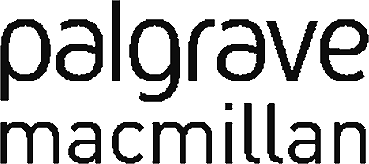
Logo of the publisher
Wendy Steele
Centre for Urban Research, RMIT University, Melbourne, VIC, Australia
Lauren Rickards
Centre for Urban Research, RMIT University, Melbourne, VIC, Australia
ISBN 978-3-030-73574-6 e-ISBN 978-3-030-73575-3
https://doi.org/10.1007/978-3-030-73575-3
The Editor(s) (if applicable) and The Author(s), under exclusive license to Springer Nature Switzerland AG 2021
This work is subject to copyright. All rights are solely and exclusively licensed by the Publisher, whether the whole or part of the material is concerned, specifically the rights of translation, reprinting, reuse of illustrations, recitation, broadcasting, reproduction on microfilms or in any other physical way, and transmission or information storage and retrieval, electronic adaptation, computer software, or by similar or dissimilar methodology now known or hereafter developed.
The use of general descriptive names, registered names, trademarks, service marks, etc. in this publication does not imply, even in the absence of a specific statement, that such names are exempt from the relevant protective laws and regulations and therefore free for general use.
The publisher, the authors and the editors are safe to assume that the advice and information in this book are believed to be true and accurate at the date of publication. Neither the publisher nor the authors or the editors give a warranty, expressed or implied, with respect to the material contained herein or for any errors or omissions that may have been made. The publisher remains neutral with regard to jurisdictional claims in published maps and institutional affiliations.
This Palgrave Macmillan imprint is published by the registered company Springer Nature Switzerland AG
The registered company address is: Gewerbestrasse 11, 6330 Cham, Switzerland
Offering critical hope for a more sustainable future, this clearly written book examines how higher education can engage in transforming itself and the world by considering the vision of social and environmental justice represented by the UN Sustainable Development Goals. Steele and Rickards challenge universities to become enablers of change by combining deep institutional commitments with bold, ethical cultures of innovation, and to integrate the SDGs into inclusive research and teaching. Especially impressive is the way in which the authors draw on social theory and constructive criticisms of higher education and development, to provide positive and actionable pathways forward. Reading the manuscript, I wanted to immediately share the insights of this book with my university leadership, my faculty colleagues and my students, especially as we try to navigate a post pandemic, antiracist, more equal and low carbon future for people and the planet.
Diana Liverman, Regents Professor and Director of the School of Geography, Development, and Environment, University of Arizona, USA
The worlds universities are important for achieving the UN Sustainable Development Goals. What should universities be offering to this effort? Equally important, how should universities themselves change, in response to the SDGs? Wendy Steele and Lauren Rickards provide a unique, up-to-date guide to these issues, offering frameworks for thought and resources for action.
Raewyn Connell, Emerita Professor, Faculty of Arts and Social Sciences, University of Sydney, and author of The Good University
This book presents a compelling and refreshing take on the contemporary university and its transformative potential. Analysing the engagement between the Sustainable Development Goals and higher education, Steele and Rickards provide energy and hope for those of us exhausted by the continual restructuring of the neoliberal university.
Lesley Head, Redmond Barry Distinguished Professor, School of Geography, The University of Melbourne, Australia
Preface
How Did We Get Here?
How did the world get to the point of entering the multi-catastrophic Anthropocene ? How did universities get to the point of being places of intense paradox ? And how did we, as two Australian university-based academics who research the impacts and antecedents of the climate emergency from a critical social science perspective, get to the point of writing this book on the Sustainable Development Goals (SDGs) and the role of higher education ?
All of These Things Are Interrelated
As academics based in a public university system under enormous growth and development pressures with scaffolding flow-on effects for people, place and planet, we are highly alert to the fact that the crisis in higher education mirrors the broader climate of crisis and change. Despite the rhetoric around sustainability , impact and engagement, there is too little urgency or action within the mainstream Academy or in society on the big societal issues such as climate change, biodiversity loss and deep inequalities.
Decoupling the idea of the university from the developmentalities that have led to current global conditions of unsustainability has never been more needed. And yet it has never felt so hard. The issue is that they are inextricably linkedjoined at the hipwith shared histories, trajectories and legacies that must be first recognised and understood in order to be meaningfully addressed. This inconvenient, uncomfortable truth utterly disrupts the idea that universities are above, beyond or outside the worlds they critique and serve. It exposes the notion that universities can choose to engage, or not, as a myththe question is how, not if, they affect the sustainable development challenge.
Sustainable Development for Who, How, When and to What Effect?
Now more than ever it is clear that we cannot neglect our global context and local connections. The SDG agenda is not perfect, but it holds radical potential relative to what many universities currently do and offers a platform and prospects for transformative action and change. Universities are at the heart of sustainability from the inside out. The SDGs are a shared witness statement to the state of the planet, one that requires humility and responsibility, but also brings with it hope that a more sustainable future is stillpossible.
Wendy Steele
Lauren Rickards
Melbourne, VIC, Australia
Acknowledgements
We would like to acknowledge that we live and work on the unceded lands of the Wurrundjeri people of the Eastern Kulin Nations and as uninvited guests we pay our sincere respects to Ancestors and Elders past, present and emerging.
This book began with a small project that received the RMIT University Enabling Capability Platform (ECP) Big Ideas seed funding in 2018. We would like to acknowledge and thank Swee Mak and the ECP Directors for their support and engagement with the project. In particular, our thanks to Bruce Willis, Emma Shortis, Robbie Guevera, Simon Feeney, Renzo-Mori Junior, Jago Dodson, Prashanti Mayfield, Billie Giles-Corti, Ralph Horne, Joana Correria, Kim Gordon, Andrew Butt, Libby Porter and Olga Kokshagina for their constructive suggestions and encouragement. A number of key people have been supportive of the project and made time for meetings and discussion around the innovative role of the SDGs at RMIT University, including Calum Drummond, Mark McMillan, Belinda Tynan, Peter West, Katherine Johnson, Peter Kelly, Usha Iyer-Raniga, Clare Russell, Riaan Lourens, David Downes, Sherman Young, Linda Stevenson, Brian Coffee, Kylie Porter, Karyn Bosomworth, Melanie Davern, John Handmer and Darryn McEvoy. The project has been greatly enriched by the many contributions of the research associates and assistants: Oli Moraes, Mette Hotker, Anthony Richardson, Jaydon Holmes, Sarah Robertson and Tom Overton-Skinner.

